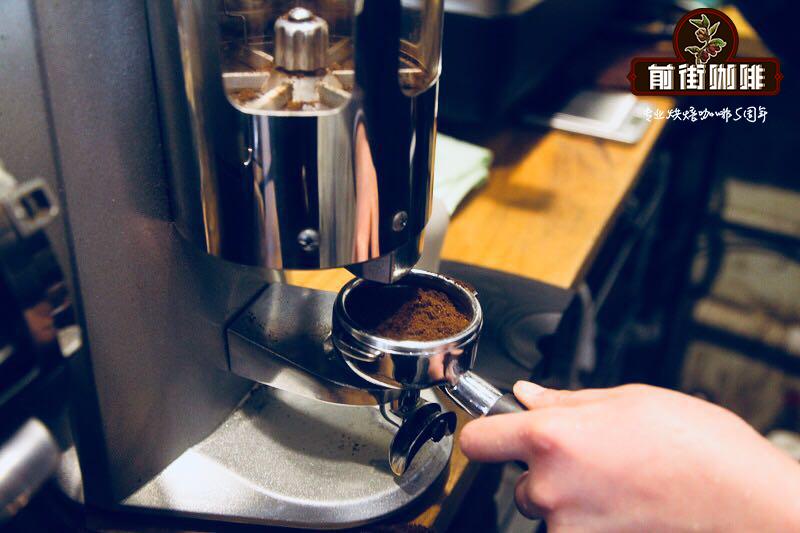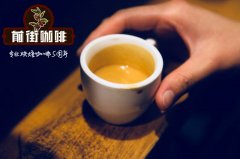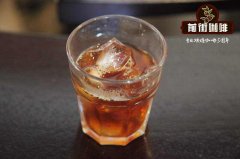Do you know how to produce more oil in espresso? will the flavor of coffee without oil be weak?

Professional coffee knowledge exchange more coffee bean information please follow the coffee workshop (Wechat official account cafe_style)
In a real sense, coffee extraction is a necessary factor that determines the flavor and taste of a cup of coffee. The quality of extraction is also a direct standard that directly defines the quality of a coffee.
At present, there are two kinds of coffee in the world that need to be extracted, one is Italian coffee, that is, we drink latte cappuccino Italian concentrate, and so on. The other is to make coffee by hand. Single coffee refers to a single variety and single origin. However, in this issue of coffee extraction, we are going to talk about the extraction mode of Italian coffee and the matters needing attention.
Extraction of a cup of well-intentioned concentration requires stable pressure, appropriate water temperature, appropriate grinding degree, appropriate powder content, and so on. Then what is appropriate? For example: WBC stipulates that 1 serving of Espresso is 1oz (25~35ml, including Crema), boiled at a temperature of 90.5 to 96 degrees Celsius, brewing pressure 8.5bar~9.5bar, and extraction time of 20 to 30 seconds (no mandatory stipulation).
Extraction process:
We need the right amount of powder, strictly speaking, the difference of 0.5 grams will change the flow rate, so each time the amount of powder should be controlled within 0.5 grams, preferably 0.3 grams. Weigh the beans with an electronic scale, put them in the bean grinder and grind them out, which is not accurate, because your beans will "eat" the powder or spit out more residual powder before it comes out. So be sure to weigh the weight of the flour falling into the flour bowl is the most accurate.
The purpose of the cloth powder is to make the coffee powder evenly in the coffee bowl and then press the powder with a powder hammer. The pressed pressed powder should be the same thickness, otherwise there will be more water passing through the thin place, which may lead to excessive extraction of this part and incomplete extraction in the thick place. The pressed pressed powder should be the same thickness, otherwise there will be more water passing through the thin place, which may lead to excessive extraction of this part and incomplete extraction in the thick place.
Be sure to put water before the handle, because this part of the water may be very hot, so that your coffee is overextracted, and the water can also be used to clean the water distribution network. As for how much water you put, you should do more tests according to your own situation. If you put too much, it is easy to lose too much temperature, and it will not be effective if you put less.
Prepare electronic scales and timers before extraction. Why do you need an electronic scale when you have a measuring cup? Because the thickness of oil extracted from beans with different formulations and different freshness is different, so the measuring cup is not accurate. We should accurately calculate the concentration and extraction rate, and try to be accurate in every step, otherwise the final data error is too big to have guiding significance.
The amount of oil extraction is the correct ratio of powder to time.
When it comes to coffee oil, the most intuitive thing should be the golden fat foam on the Italian concentrate, which we call "Crema". Many people see Crema as the soul of an espresso, but that's only half true.
Many flavor substances in coffee are fat-soluble, and the so-called "emulsification" will occur in the process of coffee extraction. if the extraction method is proper, the emulsified oil-water mixture shows the state of "oil-water". Oil can also retain a large number of water-soluble but highly fugitive flavor.
However, the most terrible thing in life is often this. Causing "miscellaneous astringency" and "throat-biting bitterness" and even "burning taste" are fat-soluble substances.
Although coffee oil is good for flavor, it is by no means the more the better. if you like, you can lick the Crema on top of the Italian concentrate alone, and you will find that although it has a full aroma, it is also quite astringent.
This is still under the premise of properly extracted Italian concentration, some Italian coffee, in order to pull flowers, try to extract a little more Crema, resulting in bitterness and mixed taste is also very likely.
The miscellaneous sensation caused by this fat-soluble substance is also a very important factor in the discussion of hand-brewed coffee. In hand-brewed coffee, if there is less oil, it will cause a thin taste.
However, allowing too much emulsified oil into the coffee liquid will also cause bad flavor, so it is also a knowledge that how to balance the taste and flavor by proper extraction. It is also a flavor aspect that is most difficult to control by mobilizing the so-called "parameters".
END
Important Notice :
前街咖啡 FrontStreet Coffee has moved to new addredd:
FrontStreet Coffee Address: 315,Donghua East Road,GuangZhou
Tel:020 38364473
- Prev

What is the effect of coffee oil on health? can I drink coffee oil? what is the taste?
Professional coffee knowledge exchange more information about coffee beans Please pay attention to the thickness and duration of espresso oil in coffee workshop (Wechat official account cafe_style), which is directly related to the freshness of coffee. In most cases, the richer the coffee oil is, the fresher the beans are. At this time, the sour taste of coffee is weak, and it can show a thick and full-bodied texture, and the flavor is mainly in nuts, caramel and milk.
- Next

Do you know what substances are in coffee? what's the effect of protein content in coffee?
Professional coffee knowledge exchange more information about coffee beans Please pay attention to the coffee workshop (Wechat official account cafe_style) the chemical composition of coffee beans is very complex, of which carbohydrates account for the most. Coffee beans contain a variety of carbohydrates, accounting for 60% of the total weight of raw coffee beans, as well as some protein, fat, tannin, caffeine, minerals and others.
Related
- Beginners will see the "Coffee pull flower" guide!
- What is the difference between ice blog purified milk and ordinary milk coffee?
- Why is the Philippines the largest producer of crops in Liberia?
- For coffee extraction, should the fine powder be retained?
- How does extracted espresso fill pressed powder? How much strength does it take to press the powder?
- How to make jasmine cold extract coffee? Is the jasmine + latte good?
- Will this little toy really make the coffee taste better? How does Lily Drip affect coffee extraction?
- Will the action of slapping the filter cup also affect coffee extraction?
- What's the difference between powder-to-water ratio and powder-to-liquid ratio?
- What is the Ethiopian local species? What does it have to do with Heirloom native species?

